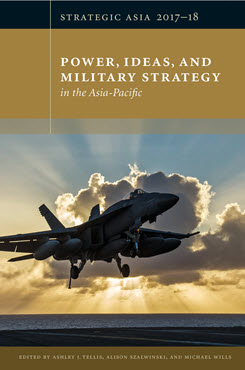Power, Ideas, and Politics
Obstacles to an Externally Oriented Indonesian Military Strategy
This chapter analyzes Indonesia’s security threats, material capacity, and strategic culture and assesses how these factors interact to produce the country’s military strategies.
Executive Summary
MAIN ARGUMENT
Indonesia lacks a coherent military strategy and as a result is currently under-balancing against the country’s key external threat, China’s maritime assertiveness. The adoption of a suboptimal strategy is a function of limited material capabilities as well as a strategic culture that emphasizes a defensive orientation and rejects military alliances as a threat to national autonomy. Indonesia has forgone investment in its power-projection capacity because it has traditionally viewed its primary security threats as internal ones, such as social cohesion, terrorism, and separatism. Yet although Indonesia’s military strategy is inadequate, it might be durable due to political contestation over the nature and severity of the China threat; divergent interests among military, economic, and political actors; and competition over resources within the military between the politically dominant army and the navy and air force, which would both benefit from the adoption of a new strategy.
POLICY IMPLICATIONS
- Indonesia’s lack of a coherent maritime security strategy and power-projection capacity undermines its leadership position in ASEAN and its strategic position in the broader Asia-Pacific.
- Indonesia and the U.S. share common interests in a stable, rules-based maritime order in the Asia-Pacific, but Indonesia’s lack of maritime capacity and aversion to military alliances limit the extent to which the two countries can cooperate in pursuit of these interests.
- Political debates over the severity of the maritime security threat from China, combined with Indonesia’s staunch commitment to strategic autonomy, mean that the U.S. will find it difficult to convince Indonesia to join efforts to counter China’s maritime assertiveness.
Strategic Asia
The Strategic Asia annual edited volume incorporates assessments of economic, political, and military trends and focuses on the strategies that drive policy in the region. Learn more about Strategic Asia.



